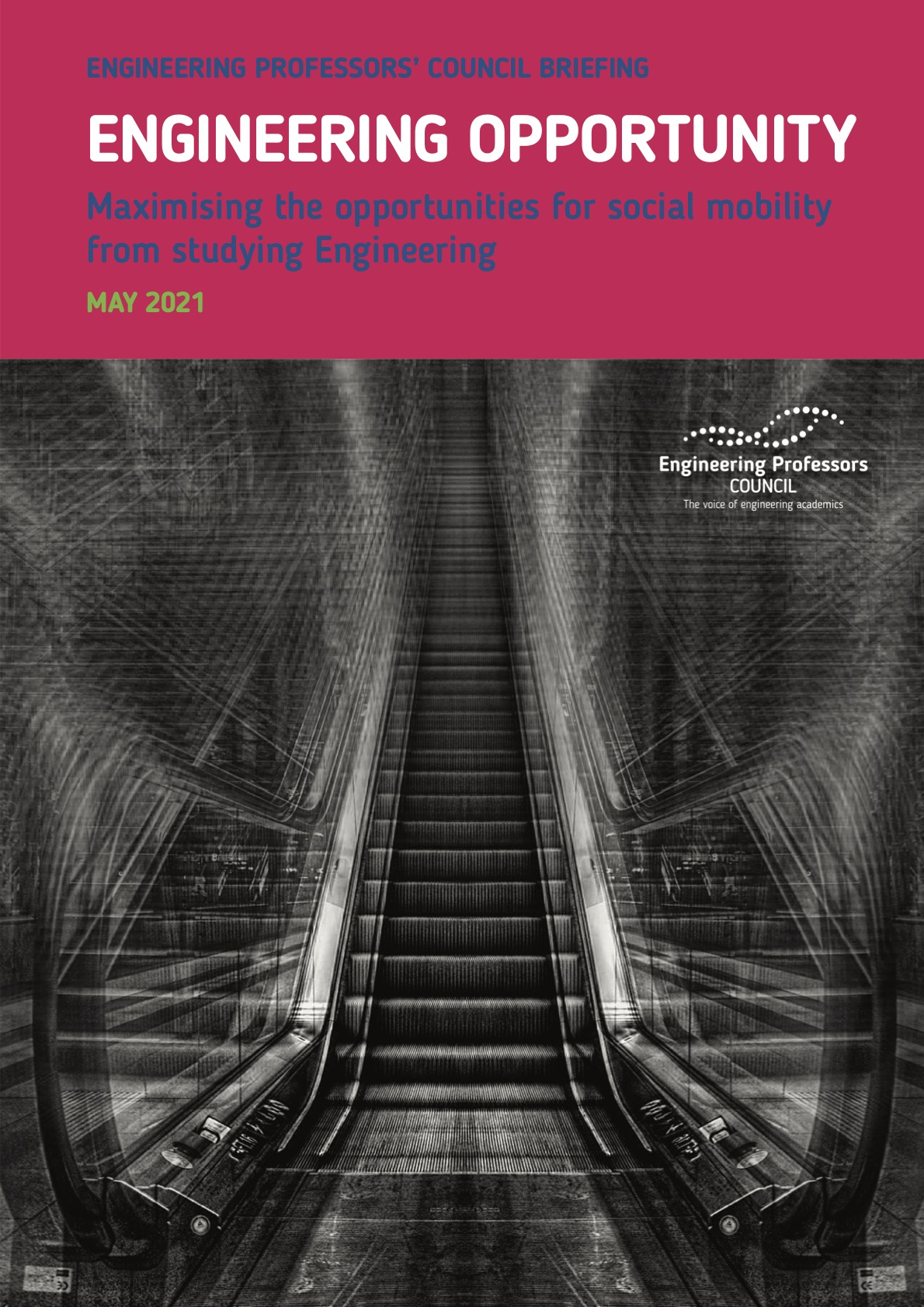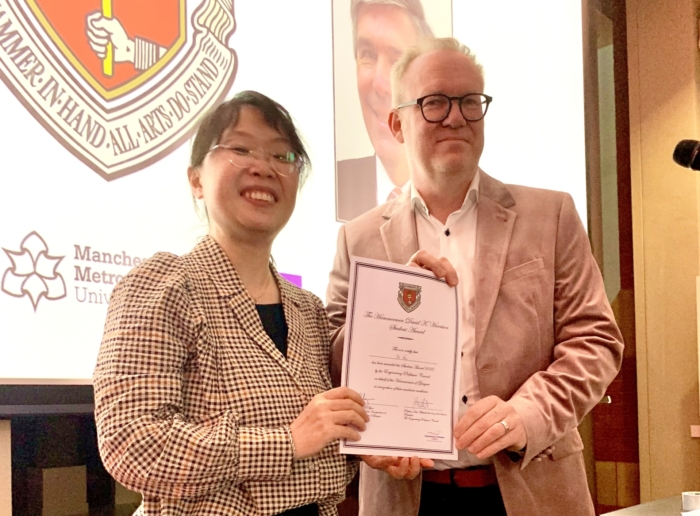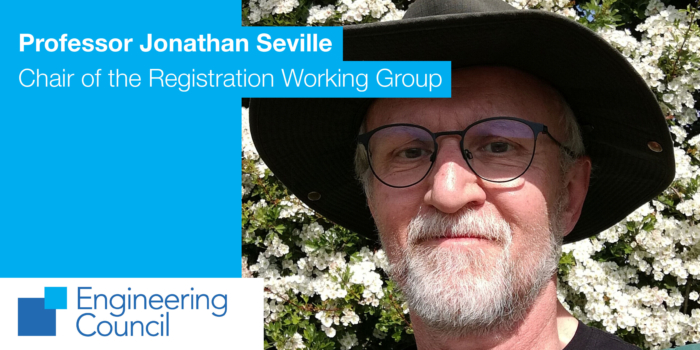EMBARGO: 00:01 Tuesday 25th May 2021
For more information: Johnny Rich, 078 1111 4292, j.rich@epc.ac.uk
A new study, published today by the Engineering Professors’ Council (EPC), reveals that studying an Engineering degree gives a greater boost to social mobility when compared to other subjects. In case you missed it, a recording of the event launch is available at Recent events (epc.ac.uk).
The EPC, which represents engineering academics across UK universities, found that data relating to graduates’ earnings, backgrounds and entry qualifications suggests that the gap between the incomes of Engineering graduates from different socio-economic backgrounds was significantly smaller than for other graduates.
The Engineering Opportunity report reveals that, ten years after qualifying, the average salary of Engineering graduates is £42,700 – which is £11,700 more than the average of other graduates. While some of this was down to pre-existing characteristics associated with higher earnings (such as higher entry grades, gender, region and social status), these factors could not account for the whole gap and the higher earnings were relatively evenly spread across the country.
The study concludes: “Choosing to study Engineering in higher education really does increase labour market success, one of the drivers of social mobility.”
The earnings premium was greatest for engineers with BTEC qualifications, a group which tends to have much larger numbers of students from disadvantaged backgrounds. They earned an average of £8,100 more than the average wage of other graduates with BTECs five years after graduating.
The findings suggest that foundation years (in-university access courses) in Engineering may be a particularly effective way of delivering social mobility to students without traditional entry qualifications, but these opportunities were limited, especially in the most selective universities.
Today’s publication provides timely evidence for the English Government’s plans for higher education. The Department for Education is expected to respond later in the year to the Augar Review of post-16 education, which recommended that the funding of foundation years should be axed. The DfE is also considering dropping BTECs as a qualification and making changes to admissions that the EPC believes would narrow opportunities.
The DfE also intends to consult on changes to fees to bolster STEM subjects and the report supports the argument that Engineering at least delivers an excellent return on investment in terms of earnings. However, the report also identifies key areas of concern and makes various recommendations to boost social mobility through Engineering and all areas of higher education.
For example, the report showed that, despite offering a clear career benefit to all students, Engineering disproportionately attracts those from higher socio-economic groups. It was also clear that the lack of science and maths teaching in secondary education – particularly in schools with high numbers of disadvantaged students – is a major barrier to accessing the benefits of Engineering higher education.
The study also demonstrated that, although the vast majority of students with lower qualifications benefitted when given an opportunity to study an Engineering degree, some struggled and were more prone to dropping out.
Drawing on the findings, the EPC report includes seven policy recommendations to further enhance the social mobility gains achieved through higher education, and Engineering in particular. These include: wider access to ‘triple science’ at GCSE; more radical and widespread consideration of students’ backgrounds in university admissions; entry grades automatically adjusted to account for background; expansion of foundation years; conversion courses to support students academically; use of metrics that focus on the value added to each student rather than unfair comparisons; and regulation of university access at the level of subject areas as well as whole institutions.
The EPC’s Chief Executive, Johnny Rich, commented:
“Our findings demonstrate that not only is Engineering higher education critical to the future of our economy, our regions and our environment, it is also a great social leveller, providing a more equal chance to succeed for all students regardless of their background.
“Aspiration among young people is not lacking, but opportunity is. We need to build a system – through education and into employment – that engineers opportunities for all who want to realise their potential.”
EPC President, Professor Colin Turner, added:
“We must build on our success in creating chances for students by maximising their potential. We must level the playing field of educational opportunities in schools. We must support those with BTECs or from disadvantaged backgrounds to gain access to Engineering degrees and foundation years. We must support them to succeed by addressing their academic needs. And we must help them to progress into the workplace where they can build opportunities for generations to come.”
Notes:
- The Engineering Professors’ Council is the voice of engineering academics in UK universities, representing over 8,000 individuals across 85 different universities.
- Engineering Opportunity: Maximising the opportunities for social mobility from studying engineering is available on the EPC website here.
- The report will be launched at an online event from 9.15 to 10.15 am. Key findings will be presented as well as a panel of individuals who are able to share their personal perspectives on social mobility. Register to attend at bit.ly/EPCSocialMobility
- Johnny Rich, EPC Chief Executive, is available for interview. For any enquiries, please feel free to contact Johnny Rich at 078 1111 4292 or via email.




